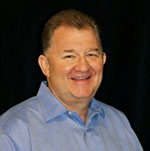 by Grady King
by Grady King
“Therefore, since through God’s mercy we have this ministry, we do not lose heart.” 2 Corinthians 4:1
I am forever grateful for Lynn Anderson and Charles Siburt’s teaching and spiritual leadership. Both men have been a part of my life by the grace of God for over thirty years. I do not write alone because of their imprint of God’s ministry of mercy in my life. They taught me how to minister, teach, preach, and shepherd God’s people with passion, clarity, and above all, hope that anchors my soul.
Although very different in approach, personality, and ministry, Lynn and Charlie ministered by God’s mercy and gave hope to leaders. Lynn is far from retired and has entrusted his ministry to faithful men who continue his passion for mentoring and equipping leaders.
Charlie is gone, but his influence lives on. As director of the Doctor of Ministry program and director of Church Relations at Abilene Christian University, he blessed thousands of people through training ministers and being a friend to church leaders. He had many sayings, but my favorite is: “In Christ, the worst things are never the last things.” He passed away in July 2012 and not a day goes by that he is not missed.
It was a cold, blustery February morning in 2012 when Charlie called. He asked me to be a plenary speaker to about two-hundred elders at ELDER LINK. My mind was working overtime thinking about what he would want me to talk about. He always had a plan. Before I could ask, he said, “Here’s the topic I have in mind: “Leading When Your Church is Not Growing.” Then, he said, “Are you tired of talking about it? I hesitated, wanting to say, “Yes.” Before I could answer, he said, “I want you to address this topic because you have lived it. There are far more churches not growing, than growing. Leaders know it and live with it. Offer them some encouragement.” I agreed.
Charlie knew my story of serving in one church for nearly fifteen years–a church that went from 1,000 in attendance to 600 and rattled around in a 3,000-seat worship center. It was an aging church. Young families were moving to the new suburbs, saying essentially the same thing: “We love the church. It’s just that we are concerned about the schools and changing neighborhoods.” The glory days in the minds of many people were over. It was a good church with good people. Its founding vision in a white middle-class suburb of Dallas was noble: be a growing church for the glory of God, reaching as many people as possible. It was a program-based church doing good works and following Jesus. Then, over a decade the suburb became more urban, the demographic shift escalated in a direction far from the demographic of the church. Everything she had been and defined her echoed in the halls. In short, a new vision was in order. Enter missional.
Missional church rhetoric and strategies were in vogue. Defining missional, however, was like nailing jello to the wall. The essence of missional is thinking and acting as missionaries in our own context. At the heart of missional living is discerning and learning to partner where God leads and is at work in the world. It promulgated a more fundamental change in church and ministry than what anyone anticipated. Even me. It wasn’t about academic understanding, better preaching, or programs. A profound reorientation in being the church in the world was essential for survival. The DNA of the church, however, was set. Every church has a DNA–a controlling narrative shaping her personality and behavior. Managing morale in a long season of decline was a daily struggle. As ministry staff transitioned out and were not replaced, the remaining staff struggled with weariness and at times, institutional anger and cynicism.
 As the preaching minister and staff leader I intellectually knew it was not all my fault. Yet, emotionally I felt responsible. My blood pressure increased. I gained weight. My restless spirit would not go away. The elders felt it too and were very supportive as we licked our wounds. A vocal segment of the church regularly complained that the problem was “poor leadership.” A Baptist pastor friend in the same community said to me, “Your people and my people have a lot in common–when we get in a crisis, we study it more, preach more boldly, and look for a new program.” In our context, a deeper and more profound change was needed. We were now missionaries in our own context. So, I pulled out all the stops and boldly exhorted and admonished the church into a new way of being–the missional way.
As the preaching minister and staff leader I intellectually knew it was not all my fault. Yet, emotionally I felt responsible. My blood pressure increased. I gained weight. My restless spirit would not go away. The elders felt it too and were very supportive as we licked our wounds. A vocal segment of the church regularly complained that the problem was “poor leadership.” A Baptist pastor friend in the same community said to me, “Your people and my people have a lot in common–when we get in a crisis, we study it more, preach more boldly, and look for a new program.” In our context, a deeper and more profound change was needed. We were now missionaries in our own context. So, I pulled out all the stops and boldly exhorted and admonished the church into a new way of being–the missional way.
It didn’t work. I was exhausted.
Many a Saturday night I walked the building, praying and ending up on the steps leading to the pulpit in darkness–in the worship center and in my soul. In the darkness, I begged God for strength, direction, and renewal in the spirit of mission. Hope came through small victories of doing ministry to the marginalized in the community through experiments and partnerships. There simply was not enough synergy, time, or desire for being anything but a good church, blessing others and doing what we had always done. Over and over I told the church, “We do not fail, we learn” as we would dwell in 2 Corinthians 4 to hear God’s voice speaking into our reality and imagining a new way of being. I now know the message of learning, not failing was as much for me as the church. Come Sunday, however, and in elders’ meetings, the numbers game of people in the pew and cash in the plate ruled. Concern in the pews about the future prompted quick-fix solutions to no avail. After all, “Who is going to pay for all this community ministry?” was a phrase I heard much more than, “We have this ministry . . . Let us not lose heart.”
Charlie and Lynn walked with me from a distance in supportive and at times life-saving ways. This is why Charlie said,“I want you to address the topic . . . you have lived it.” I am learning that I can’t fix the church–something Charlie and Lynn constantly shared with me, along with the principle that I could not control anyone but myself. My job was not to fix the church, but rather to be a maturing, responsible leader as a non-anxious presence. On more than one occasion, I heard Charlie say, “Manage yourself.” This was the ministry posture for stability, hope, and healthy change.[1] Constantly focusing on fixing others is futile and merely increases anxiety. Anxious leaders fuse and/or distance themselves from anxiety. Ironically, whether we fuse or distance ourselves from anxiety, the symptoms are the same: resignation, blame, shame, and even anger. These characteristics are, unfortunately, the common posture we adopt because we sincerely want to fix things–make them better.[2]
Why is it that we adopt a posture of fixing the church? In the next article in this series, we will discuss the three primary reasons we why we as leaders function as fixers.
Part 1 | Part 2 | Part 3 | Part 4
[1] Case in point of this ministry posture can be seen in Paul’s counsel to Timothy (1 Tim 4.12-16) considering the anxiety in the church at Ephesus (see 1 Timothy 1.3-7).
[2] The language of managing self, anxiety, and fixing others is rooted in family systems theory and popularized by the late Edwin Friedman in his works, Generation to Generation: Family Process in Church and Synagogue and A Failure of Nerve: Leadership in an Age of Quick Fix.

Leave a Reply